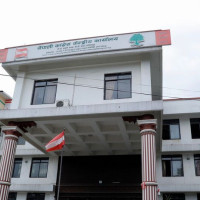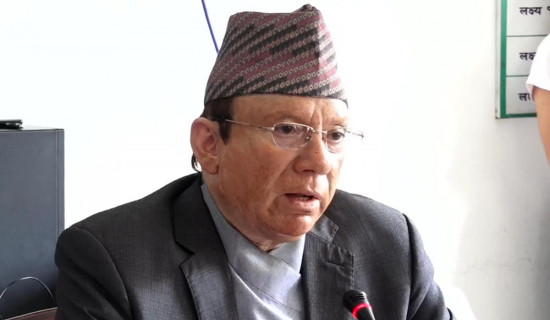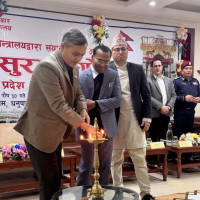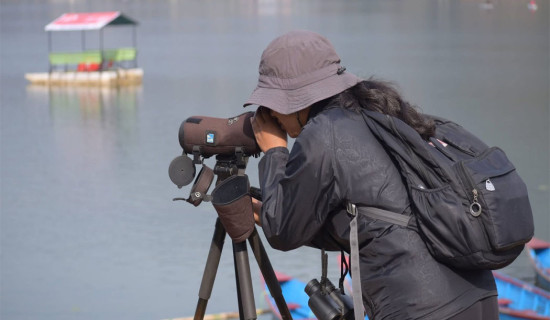- Wednesday, 14 January 2026
Youths taking ‘staycations’ instead of vacations
Kathmandu, Mar. 27: Shalini Budhathoki gets two weeks off from work at the end of every Nepali calendar year. This is a mandatory leave her office provides to all its employees to enhance their well-being and give them a break from their schedule, she said. And while some of her colleagues use the time to travel and enjoy, she uses it to unwind at home.
“And it’s not just me,” the 27-year-old said. “Many co-workers of my generation choose to stay relaxed at home and do as little travelling as possible.”
“We want to use our time off staying in bed, wearing comfy clothes, eating what we want when we want and catching up on books and movies,” she said, explaining a trend that is increasingly catching on with the youths – Staycation.
Staycation is a portmanteau of the words ‘staying put’ and ‘vacation’ and means exactly what it says it does: a vacation spent at home or near home, enjoying leisure and only visiting nearby attractions.
“Do you know how stressful planning a vacation is!” expressed Yug Basnet. “You have to decide where to go, find people to travel with, manage money for accommodation and food and then take care of shopping and packing. No, thank you!”
Basnet, 32, who said he had not travelled outside Kathmandu for vacation since his honeymoon three years ago, felt staycation encapsulated the true meaning of a holiday. “Being comfortable in your home, in your bed, surrounded by your family without having to make any effort.”
Since staycation involves staying at home with minimal travel, it is hard to get concrete data on how popular or prevalent it is. But several surveys done in North America show that the trend gained traction after the COVID-19 pandemic shut people indoors. A look at Google Trends also shows that web searches for the term ‘Staycation’ skyrocketed after May 2020 and reached their peak in the July 19-July 25, 2020 week.
In Nepal too, it can be assumed that staycation became a fad after the coronavirus outbreak, said Khadga Prasad Chhetri, a travel and hospitality businessman. “But here, it has more to do with living expenses,” he highlighted.
Chhetri believed that the young people of today are forced to spend more on life’s necessities and thus, had little left for travelling. “Everything from clothes to groceries and rent is more expensive than it used to be. This prevents youths, who may just be starting their careers with average or below-average salaries, from spending on lavish vacations.”
But Bhawana Tamrakar told The Rising Nepal that she would not travel even if she had money. “Just gather your friends at your house. Prepare a few dishes and put on a good movie. You’ve got yourself a vacation like that.”
“Oh, sorry,” she corrected herself, “A staycation.”














